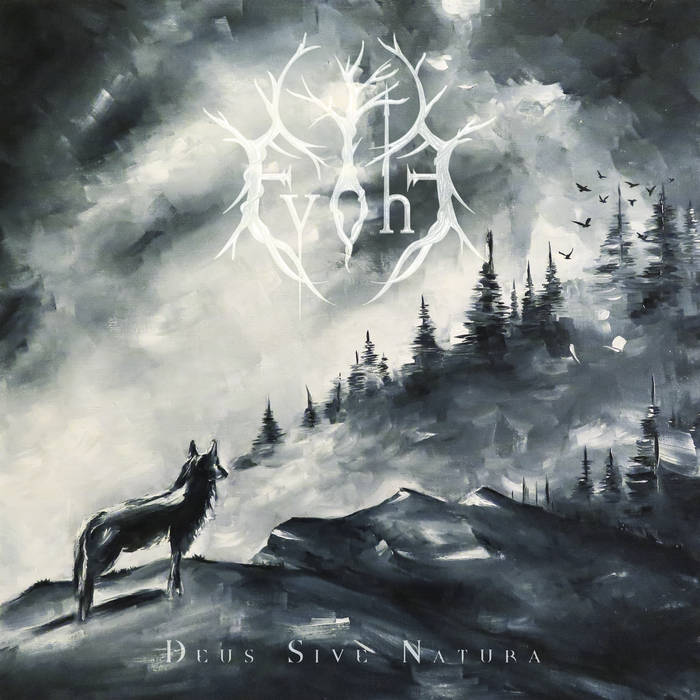
EVOHÉ – Deus Sive Natura
- by J.N.
- Posted on 27-07-2019
The French purveyors of pagan black metal, more specifically the quintet known as Evohé, have been at it for nearly twenty years now, but "Deus Sive Natura" is merely the band’s third album so far and it has been eight years since its predecessor ("Annwvyn") saw the light of day, but I am happy to report that the long wait has been worth it.
There is nothing outrageously original or wildly innovative to what these skilled musicians do and yet they have a sound and identity of their own. What I cherish about this hour-long record is that it strikes such a good balance between grandeur and grimness. At times it soars and reaches majestic heights only to break down completely and revel in some rather primal and raw parts that recall early Norwegian black metal. Those contrasts and dichotomies are interesting to these ears, but the best part of this 9-track offering is that the compositions are memorable despite them containing plenty of wild twists and turns. On top of that, they possess drive and that particular brand of confidence that comes with age and experience. The vocals also deserve praise as they range from harsh and menacing to dark and murky. The use of clean vocals is quite decent (albeit not THAT fantastic or inspired) and at times they utter something that can only be described as murky rallying calls, which is pretty cool. Not every cut is a winner though, and "Eola Monumenta" and "…Of Ancient Lores" are fairly pedestrian affairs that are quickly forgotten. The cold and bombastic sound of the album works in favor of the song material (especially with the bass being so upfront in the mix) and there is no mistaking the talents of each member of the group.
If you want (pagan) black metal that is both epic and ominous (and dig acts such as Kampfar, Helheim, and Immortal), "Deus Sive Natura" ought to be added to your list of records to check out in the near future. For a good example of what Evohé have to offer, immerse yourself in the melodic and rather melancholy "The Tears of Forgotten Times" or the varied and folk-like "A Thunder of Misfortune".
